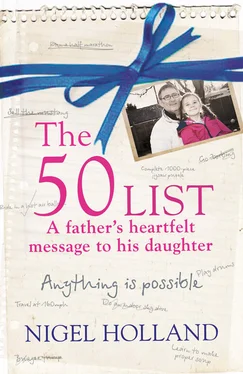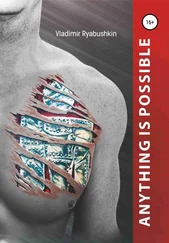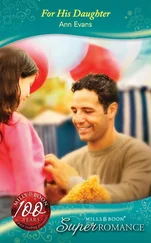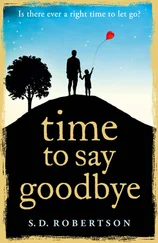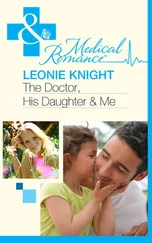So off I’d trot, trying not to let the hurt I felt show, trying to pretend I had better things to do anyway, trying not to let it get to me. But it did, and my mother could see that all too well. My ‘don’t care’ carapace wasn’t thick enough for me to hide under – not with her.
‘You know what?’ she said one day when she picked me up from school, ‘I was in town earlier, and I was looking in C&A, and they have some really nice new trousers in stock. Very modern.’
And she took me, right away, back into town so that I could try some on. She was right. They were very much the look of the moment, sporting, as they did, the widest flares imaginable. And crucially, as well as being achingly cool, they were wide enough to almost completely hide my calipers. I have a lot to thank the early 1970s fashion extravagances for, I guess. And even more to thank my mum for. I’ll never forget that.
But even though the flares help to boost my flagging self-esteem, now I was in calipers I was officially disabled. No, there wasn’t any official announcement, or formal piece of paper, but there didn’t need to be. As any disabled person will undoubtedly tell you, once you become disabled, people begin to treat you so differently.
Which I suppose is understandable, but even as a child I remember finding it so frustrating that there seemed to be some sort of unspoken perception that the calipers on my legs had somehow affected my brain. That overnight I had suddenly become stupider.
Academically, I had never been at the top of the class, but neither had I been at the bottom. Yet now some teachers (not all: there were some notable exceptions) began to patronize me in a way that was completely unexpected. It was as though I’d broken both my legs and been fitted with a brace of plaster casts, and from now on it was their duty to protect me; to prevent me from doing something that could injure me further. It felt horrible. At a stroke it was as if I’d lost my independence. No, in fact it was worse than that: I had lost my independence, because they would no longer let me do all the things I used to do, despite being just as physically able – actually, more so – as I’d been before I’d had to wear the boots. They were my badge of office: the signifier that I was officially disabled, and needed treating as a disabled person.
Not that I wallowed in feeling aggrieved by all this, any more than I wallowed in self-pity. I had my moments of frustration, but I tried to make the best of it; perhaps on a subconscious level I was trying to be defiant. They might think I was disabled, but I would show them!
And my refusal to be sidelined seemed to hit home eventually. By the end of that year I think my calipers were less visible; though teachers would still hover nervously around me, perhaps the absence of a regular need for Germolene had calmed them and they felt able to relax a little more.
In any event, I was deemed fit enough to take on my first acting role – in the school nativity play. It was a progressively comic one and I was pleased to land a role that would demonstrate my talents in this area. It wasn’t a big part – I had just the one line to rehearse – but it was one that was guaranteed to get laughs. Being good at headstands, I’d been hand-picked and my job was to deliver the line ‘What’s in this bucket?’ and then fall forward and do a headstand inside it.
There was to be only one performance, so there was no room for error, and I took my responsibility correspondingly seriously. And I came good, saying my line loud and proud before doing the headstand, to a delighted whoop from a clearly impressed audience. The only thing was that in rehearsals the bucket had been placed centre stage, whereas on the night it was placed at the back of the stage, up against the wall, home to the school’s highly polished set of wooden slats. Up I went – bash! – and down I came again, perturbed. Up I went again – bash, rattle! – and once again, down. Finally, the third time, I decided to stay put, my lower legs, as I tried to balance, drumming out a military tattoo, while the other children tried to perform their own lines over the din. When I finally came down – after however many noisy minutes with my shins rattling against them – the wooden slats that had long been the caretaker’s prized equipment were so scratched and battered by my calipers that they looked as though they’d been set about by a man with a serious grudge. By the time I left the school they still hadn’t had them replaced. Perhaps they are still there. I’d like to think so.
By the age of ten, fatigue had become an issue. I had always had a little trouble walking to and from infant school, and when I went to the juniors, though I walked around while there, my parents began to push me to school and back in an adult buggy. The thinking was that if I didn’t tire myself out on the journeys, I would be less tired both while in school and when I got home.
Though not as big a thing as the calipers, the buggy ride to school was still an issue, as it made me an obvious target for bullies. Most of the time I did my best to ignore them. I had no choice. If I went after the bullies in school, I’d only fall over, which would naturally encourage them even more. Luckily, I had a good friend – with whom I am still in touch today – called Andrew Russell, who helped me out of scrapes quite a few times. But there was one boy who was my nemesis. He was fast and he was mean and he was stronger than I was, and since I had spent so long falling over and knew exactly how much it hurt, I didn’t want to be pushed over by him. In fact, ‘didn’t want’ is perhaps understating my feelings about this boy: I could never get away from him quickly enough, and I would feel physically sick if I was in a situation where I knew it would be impossible to avoid him – not to mention his equally nasty sidekick.
Most of the name-calling I attracted was unimaginative and predictable – cripple-features, stick legs and so on. But one taunt was worse than others: spindle legs. ‘There goes spindle legs!’ they’d yell, whenever I came into view, and there was something about that one, particularly, that really upset me. I don’t know why, but the picture it evoked really hurt.
Looking back it seems the easiest thing in the world to shrug such a taunt off, but at the time, as any child who’s been bullied knows, it eats away at you, particularly if your self-esteem’s already fragile because of standing out in the way that I did. It’s a feeling I’m glad I remember in some ways, because it reminds me how far society has travelled in the interim. There will always be bullies, of course, and they will always find victims, but things are so much better, in that regard, for Ellie. Not only does she attend schools (specialist in the morning and mainstream in the afternoon) where she receives physio, support and all the help she needs to thrive, but there is also much wider acceptance of people with disabilities.
I was lucky, though, in that, like Ellie, I had brilliantly supportive siblings. Mark was in high school, of course, and Gary soon went to join him, but while he was still in primary school he always looked out for me. Though our paths didn’t generally cross during the school day, he’d always make sure he was there beside me at going-home time, to tell anyone who dared bully me to back off.
But my best support was Nicola, my little sister. She may have been small but she was feisty and was my number one protector. Mess with me and you messed with her – and she was a force to be reckoned with. Still is.
Which is not to say I was a pitiable figure in school – quite the contrary. Once I got to junior school, I increased in confidence daily. By then, I think I’d learned to play to my strengths, one of which was being in the right place at the right time, which suddenly stood me in good stead on the football field. I couldn’t easily run after the ball, so I would goal-hang instead, and if the ball came my way I would just kick it wildly, in the hope that it might hit the spot. And the first time it did, there was a sea change in how my peers viewed me. No longer was I Mr Last-pick when teams were chosen.
Читать дальше
